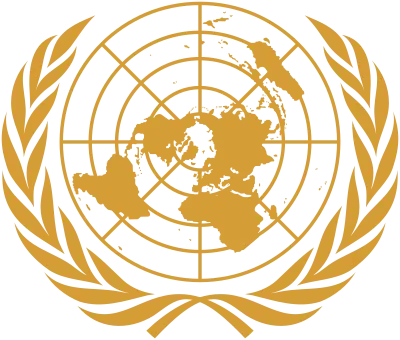
UNOPS
Peace and Security Cluster
The UNOPS Peace and Security Cluster (PSC) is a principal service provider in the field of mine action with the United Nations Mine Action Service (UNMAS), UNDP, UNICEF, Governments of mine-affected countries and other mine action partners. The Cluster is responsible to administer, provide support and oversight of the day-to-day management of the Project Field offices, both according to the client requirements and in line with UNOPS rules and regulations. It is headed by the Cluster Director who has the overall authority and accountability for the performance of the PSC on behalf of its clients.
Background – UNMAS
United Nations Mine Action Service (UNMAS) is a division of the Office of Rule of Law and Security Institutions (OROLSI) in the Department of Peace Operations (DPO). UNMAS is mandated by the United Nations General Assembly (RES/68/72) to ensure an effective, proactive and coordinated response to the problem posed by a wide range of explosive hazards. Legislative mandates also recognize UNMAS technical expertise in responding to threats posed by unsecured and unsafe conventional weapons and ammunition stockpiles. As an office within DPO, UNMAS supports peacekeeping and special political missions in accordance with Security Council mandates.
Background – UNMAS Libya
UNMAS deployed to Libya in March 2011 and was integrated into the United Nations Support Mission in Libya (UNSMIL) in July 2012. As its Mine Action Service, UNMAS Libya is mandated by UN Security Council resolution 2365 (2017) on Mine Action, as well as UNSC resolution 2656 (2022), in full accordance with the principles of national ownership, to exercise mediation and through its good offices to, inter alia: support Libyan authorities with ceasefire implementation; provide support to key Libyan institutions; support, on request, the provision of essential services and delivery of humanitarian assistance, in accordance with humanitarian principles; provide support in securing uncontrolled arms and related material and countering their proliferation; and co-ordinate international assistance, and provision of advice and assistance to Government-led efforts to stabilise post-conflict zones and to provide support to the Libyan led and Libyan-owned ceasefire monitoring mechanism and Action Plan agreed by the 5+5 Joint Military Commission. UNMAS has been delivering and coordinating humanitarian mine action responses in Libya since 2011 which include; training and capacity building of Libyan nationals in non-technical survey and Explosive Ordnance Disposal (EOD); direct project implementation in Tripoli, Benghazi, Tawergha, Gharyan, and Misrata; the provision of Explosive Ordnance Risk Education; advocacy; technical support and coordination; and quality control and assurance of ongoing mine action.
Functional Responsibilities:
Under the supervision of the Head of Project Unit (HPU), s/he will be responsible for the following functions:
1. Advice and planning
- Support the Head of Project Unit (HPU) and Chief of Mine Action Programme (CMAP) in providing advisory support on all Mine Action related matters to execute the mandate, such as:
- Provide mine action related technical expertise to the UNSMIL ceasefire monitoring component for operational planning in areas contaminated with explosive ordnance or dangerous stockpiles.
- Provide technical and operational expertise and coordination support to the 5+5 JMC Mine Action Sub-Committee, relevant entities, and associated Ceasefire Agreement monitoring committees.
- Develop threat assessments, route-specific briefings on the threat, explosive ordnance recognition and safety measures.
- Develop and oversee emergency response planning for explosive ordnance accidents/incidents and assist in emergency response implementation.
- Advise onUNSMIL and JMC monitors on the threat.
- Provide explosive hazard awareness induction training to staff and Libyan monitors.
- Conduct liaison and coordination with relevant national and international entities with knowledge of the threat to assist in operational planning, threat mitigation, and provision of international assistanceProvide data recording and management of explosive ordnance reports and support information sharing with stakeholders.
- Report progress by Libyan clearance teams on marking and clearance of contaminated areas and ammunition stockpiles, and on an ad hoc basis, investigate explosive ordnance finds for future clearance in support of the UNSMIL ceasefire monitoring component, 5 + 5 Joint Military Commission.Provide technical expertise on arms and ammunition management to facilitate UNSMIL support for the withdrawal of foreign forces and mercenaries and planning for disarmament related to the implementation of the Ceasefire Agreement.
- Provide input to the documents and processes below from mine action aspects in coordination with other advisors, including:
- The Programme Strategy (e.g. vision, mission, strategic results framework, stakeholder; analysis; risk analysis) and Workplan and Budget (e.g. nature of threat; technical personnel and equipment requirements, etc.).
- Concepts of Operations, Concept Notes and Proposals.
- Key papers at the request of the HPU/CMAP covering the UNMAS Libya Programme.
- Oversee, coordinate, and monitor the reporting and performance of operations of Mine Action activities related to CMC including:
- Ensure performance against the targets of the logical framework and workplan of the programme.
- Provide performance updates and reports to key reports, including reports for donors, UN and other key counterparts as requested.
- Lead inputs and delivery for quarterly and annual reviews, workplan reviews and other such monitoring systems as required.
- Contribute to resource mobilisation efforts to support the Libya Programme through supporting the preparation of funding proposals, programme concepts and budgets.
2. Stakeholder management
- In support of the HPU and CMAP, manage relationships with Libyan institutions and other direct stakeholders, particularly around mine action related issues.
- Coordinate with UNSMIL Sections to execute the mandate.
- Coordinate with field level operational partners, UN, and government counterparts to support implementation of the operational activities (including governors, national authorities, and UNCT members.
- Upon request from the HPU and CMAP, engage national mine action authorities and other Libyan institutions involved in mine action for purposes of coordination as requested.
3. Knowledge management and innovation
- Ensure records of operations-related files are well maintained.
- Implement relevant tools and templates to effectively manage efficient and effective operations.
- Keep abreast of and incorporate latest/best practices, approaches and technology to enhance operational results.
- Initiate and undertake lessons learned exercises, including the sharing, effective filing, and incorporation into future operational plans and ensure information sharing.
- Identify continuous improvements and lessons learned.
Education/Experience/Language requirements:
Education:
- Advanced university degree (master’s degree or equivalent) with a minimum of 7 years of relevant experience; or
- First level university degree (bachelor’s degree) with a minimum of 9 years of relevant experience may be accepted; or
- Military or police experience with 13 years of relevant experience.
Certification:
- EOD Level 3+ certification is required (in any specialist EOD activities as described in test and evaluation protocol 09.30/01/2022 (e.g., bulk demolitions, guided weapons, aerial bombs etc.).
*** EOD qualifications must be from international organizations and/or from government institutions that train and educate EOD specialists in accordance with IMAS standards. Individuals are responsible for providing proof of competence and curriculum of courses attended.
- Security Certified Program (SCP) Certification is desired.
- PRINCE2® foundation/practitioner is desired.
Experience:
- Relevant experience is defined as experience in one or more of the following areas (within the last 10 years):
– Explosive Ordnance Disposal in single, multiple and bulk demolitions
– Non-technical survey
– Technical survey
– Mechanical clearance and ground preparation
– Mechanical assisted clearance operations in an urban environment
– Manual mine clearance
– Battle Area clearance
– Road clearance
– Improvised Explosive Device Disposal (IEDD)
– EORE
- Experience working in Libya, or similar contexts in the Middle East and North Africa region is required.
- Experience in advising multi-stakeholder sub-committees established for mine action and/or WAM operations is desired.
- Experience in training design and delivery of instruction is desirable.
- Knowledge of Weapons and Ammunition Management and International Ammunition Technical Guidelines (IATG) is desirable.
- Experience working with multiple partners is desired.
Language Requirements:
Fluency in English and Arabic (reading, writing and speaking) is required.
How to apply
To apply please click in the link: UNOPS JOBS VACANCIES
https://jobs.unops.org/Pages/ViewVacancy/VADetails.aspx?id=27238
Deadline: 14 Jan 2024

